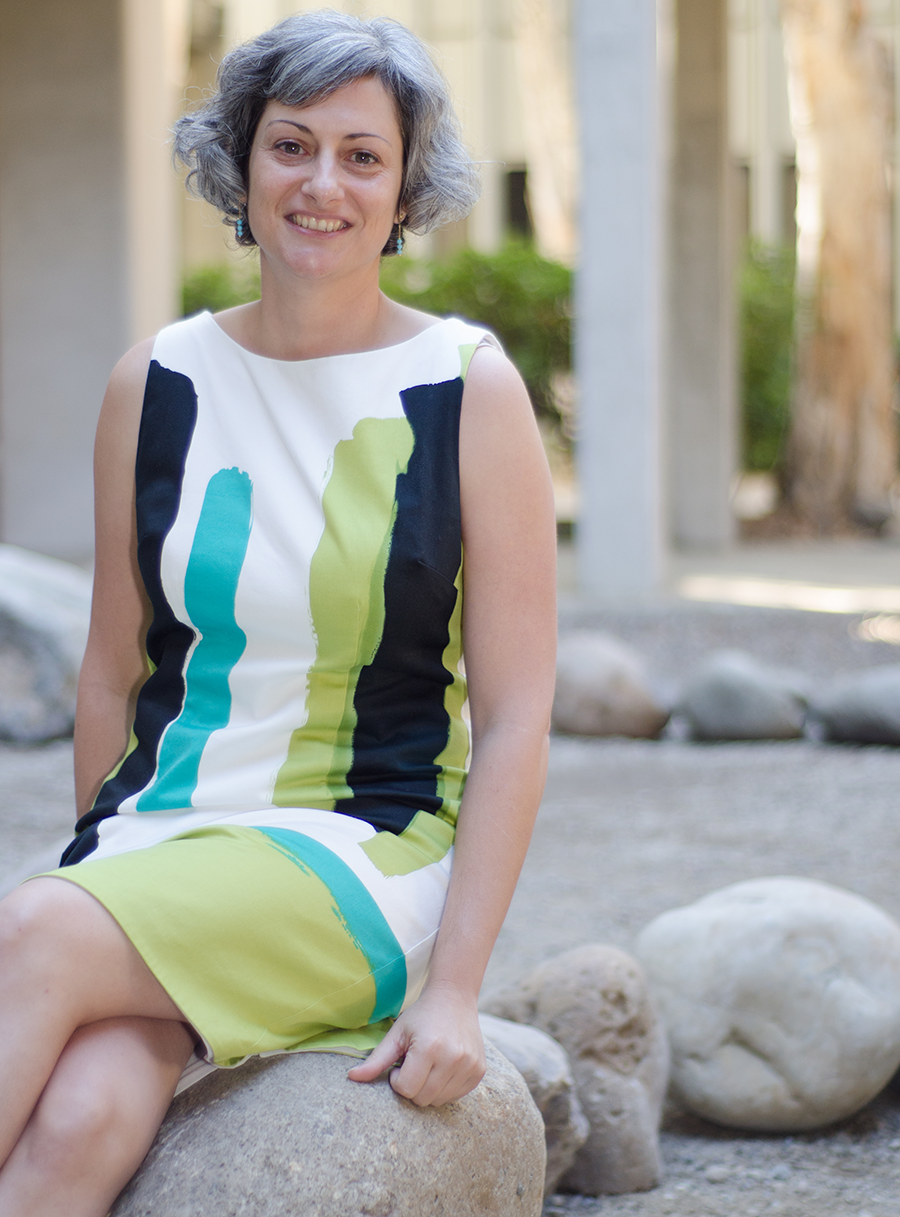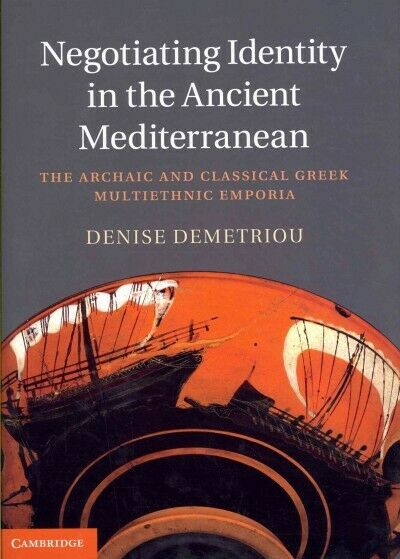Historian Denise Demetriou Receives Two Prestigious Fellowships
Support of her research is a reflection of the foundational importance of the humanities
Published Date
By:
- Anthony King
Share This:
Article Content

Denise Demetriou currently holds the Gerry and Jeannie Ranglas Chair in Ancient Greek History at UC San Diego. (Courtesy Denise Demetriou)
Something happened when Denise Demetriou was an undergrad that changed the trajectory of her career. It wasn’t jarring, but it also wasn’t expected. A student set on a path in the natural sciences, she took several Greek history courses and became instantly hooked: in her junior year she changed her focus… and changed her life.
“I realized quickly that history was going to provide me with an intellectual challenge that would sustain me for the rest of my life” she said, now an associate professor in the UC San Diego Department of History who is accepting two prestigious research fellowships for the coming academic year.
“One of the things that I always tell my undergraduate students is that they should take classes in a variety of disciplines, whether it’s music or history or something else, because that’s how they’ll find out what inspires them,” she said.
While there is still uncertainty about travel due to the global pandemic — Demetriou is expecting updates any day — the recognition and support she feels from the fellowships is no less diminished. Demetriou has been awarded a visiting fellowship to Harvard University’s Center for Hellenic Studies in Washington, D.C. and is also receiving a Getty Scholars’ Grant to conduct research at the Getty Villa in Malibu, Calif.
Demetriou currently holds the Gerry and Jeannie Ranglas Chair in Ancient Greek History at UC San Diego. She received her Ph.D. in classics from The Johns Hopkins University in 2005, and her research focuses on ancient Greek history, particularly exploring the cross-cultural interactions between Greeks and non-Greeks in the Mediterranean.
Ending her four-year term as director of the Center for Hellenic Studies in the university’s Institute of Arts and Humanities, Demetriou spoke at length of what she feels is important about studying and learning from the humanities. All students, she said, benefit.
“I think studying the humanities is vital, and in many ways students are ravenous for these types of classes,” she said. “History, great literature, theater, art: all of these enhance our imaginations and our creativity. That’s really important for our development. I also think that leads us to having empathy and tolerance, and helps us develop an understanding that there are different points of view in the world.”
The historian is also aware of the ability for personal growth, charged with learning new ideas and cultures that the arts and humanities enhance. She said growth like this — reflection that she sees often in students who are taking history classes for the first time — is continual, whether it’s navigating a global pandemic or watching news at the end of the day.
Identity, immigration and the Ancient Mediterranean
Culture was central to her first book, “Negotiating Identity in the Ancient Mediterranean,” which addressed how myriad identities in ancient Greece resulted in an evolving, multi-culture — not the “us vs. them” idea routinely taken as the norm. For her second book, which she plans on finalizing during her year of fellowships, Demetriou is taking this concept and applying it to migration.

Demetriou's first book was published in 2013.
Titled “Phoenicians Among Others: How Mobility and Migration Transformed the Ancient Mediterranean,” this research specifically looks at Phoenician-speaking immigrants who lived in the Greek world, Egypt, Carthage and Western Asia in the fourth to second centuries BCE.
“The thing about the ancient Greeks is they didn’t exist in isolation. Everyone was in constant contact with everyone else,” she said. “How can we understand any of these groups without actually studying them in context with each other? Looking at mobility and migration allows me to do that, which for many in the field is surprising and innovative.”
This understanding of ancient immigration can be applied today, and many of Demetriou’s students find resonance with what they learn in class. Never explicit, Demetriou said she prefers to present history removed from contemporary influences. In this case, she gives a history of Greek and Mediterranean society — explaining, for example, that migrants in ancient Greece felt they had to change their names to fit into an adopted society — and then she watches as students make, for themselves, connections to today’s climate.
Students recognize immigration is a hot political topic and many have strong opinions. Demetriou said the distance brought by studying historical contexts often allows for people to place their own preconceptions aside because there is nothing at stake.
“Teaching ancient history can be really useful in this respect, and students are surprised by some of the thoughts they have about the past that don’t fit with their current politics. Then they get it,” she said. “I actually do think that migration and immigration changed the Greek world in ways that are really significant, and we don’t even realize it.”
Supporting the foundational role of the humanities
Demetriou said the fellowship support allows more than just time to focus on her research, which then is brought back into the classroom to teach a “new wave” of scholars. And while her time will be spent sharpening her ideas, finishing chapters and developing a full, cohesive text to send to her publisher, she said she will also benefit from being around additional, cutting-edge scholars in the field.
The Getty Scholars’ Grant is particularly unique, as the research themes are different each year and the opportunity for her to participate in this year’s topical theme may not come again before her book is published. This makes it even more paramount that she attend — right now, the plan is to be at the Getty Villa during Winter Quarter — pending updated guidance regarding the pandemic.
Hopeful she’ll be able to take part fully in these fellowships, Demetriou is grateful for the opportunities as well as the support from philanthropic donors Gerry and Jeannie Ranglas, whose endowed chair allowed for extensive travel that laid the groundwork for the book.
“Denise’s continued research in her field is the perfect illustration of the impact endowed chairs can have, not just for advancing knowledge but for what faculty bring directly to the classroom for the benefit of our students,” said Division of Arts and Humanities Dean Cristina Della Coletta. “Support from the Ranglas family is vital to the teaching and research mission of our public university, underlining the foundational role of arts and humanities in education.”
In all, Demetriou said the support makes her hopeful that there are many who value, not just her contributions to the canon of Greek History, but the importance of humanistic study itself.
“Don’t believe the narrative that you create for yourself. Keep questioning,” she said. “Questions that the arts and humanities can answer — what is beauty, what is justice — give meaning and value to our lives.”
Share This:
You May Also Like
Stay in the Know
Keep up with all the latest from UC San Diego. Subscribe to the newsletter today.



